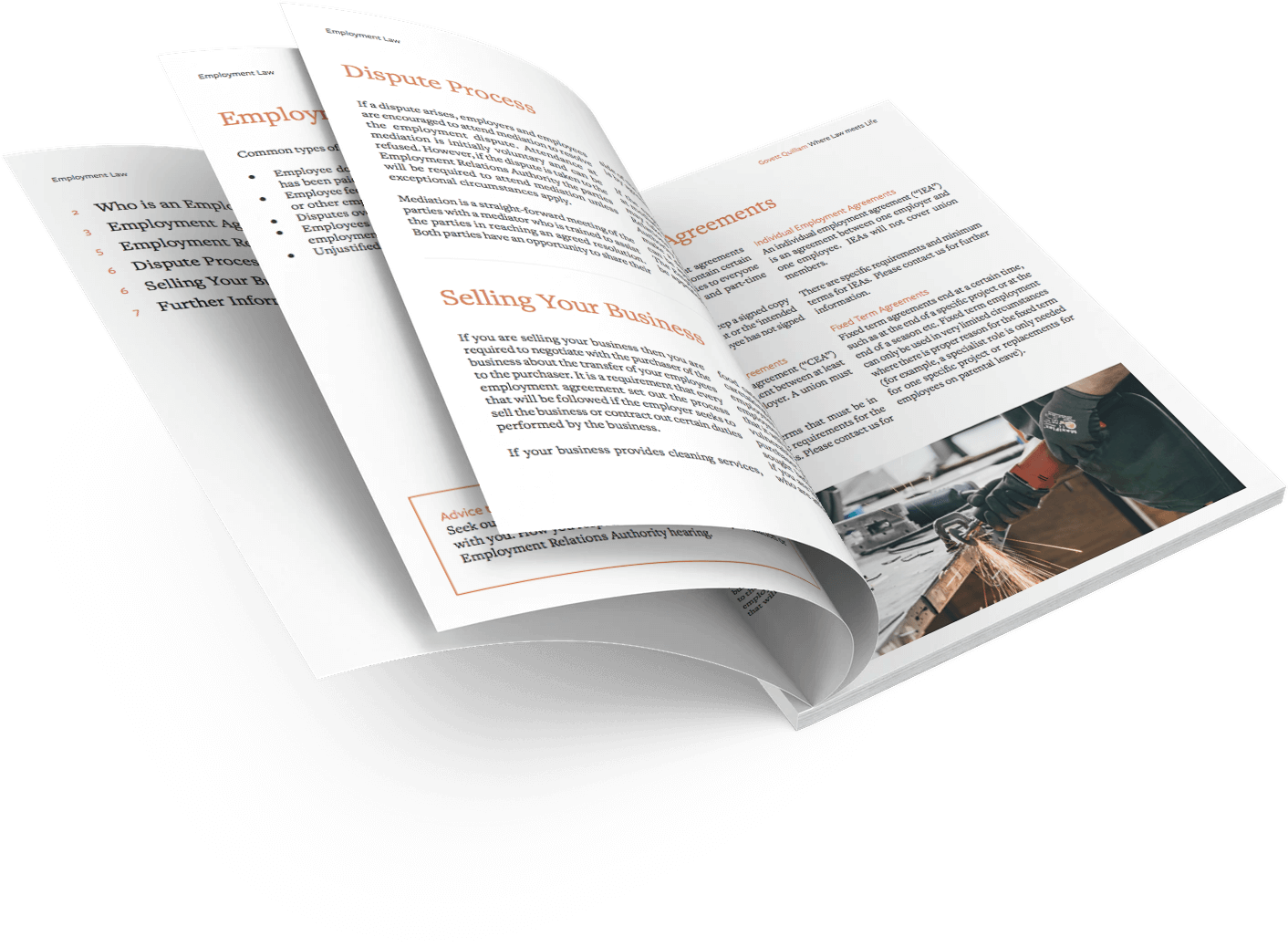
Employment law still applies to all employment relationships, despite COVID-19 related lockdowns. Both employers and employees must continue to act in good faith and meet minimum legal obligations.
With most workplaces still closed through the Level 4 nationwide lockdown, health and safety considerations will continue to be important as and when work sites reopen. That will include the possibility of staff having to self-isolate.
Guidance from the Employment New Zealand website states:
“If a worker is sick with COVID-19, or required to self-isolate, the first consideration for an employer should be to look after people, contain COVID-19 and protect public health.
Employers should not knowingly allow workers to come to a workplace when they are sick with COVID-19 or required to self-isolate under public health guidelines for COVID-19.
If they do, they are likely to be in breach of their duties under the Health and Safety at Work Act.”
As a starting point, it will generally be expected that both employers and employees have a reasonable level of awareness of the current public health guidance in relation to the COVID-19 outbreak.
-
Under section 70 of the Health Act 1956, various orders related to public health (‘Health Orders’) can be issued by an authorised Medical Officer of Health for the purpose of preventing the outbreak or spread of infectious disease (e.g. COVID-19).
-
There are currently multiple Health Orders in place, including those in relation to COVID-19 testing and self-isolation requirements for people who have visited a location of interest and/or are close contacts of an infected person – see the current section 70 Health Orders here.
-
The COVID-19 Public Health Response Act 2020 is another piece of legislation which allows various Government Officials to make orders for the purpose of supporting the public health response to COVID-19. Intentional failure to comply with an order under this Act may be considered a criminal offence, and consequently can attract a term of imprisonment of up to six months or a fine of up to $4,000.
What if an employee wants to self-isolate as a precaution, or if the employer wants an employee to self-isolate as a precaution?
-
This is a situation where an employee not subject to a public health direction to self-isolate and get tested requests to self-isolate for their own safety, or where an employer is considering requesting that an employee self-isolate and get tested for the safety of other people. For example, an employee who has recently been at an area where there is community transmission of COVID-19, but was not identified as being in any specific locations of interest at the relevant time.
-
There is no clear guidance available on this type of issue, such that basic employment law principles will likely apply.
-
Employers and employees should act in good faith and engage in constructive and transparent discussions around any potential issues. For example, if an employee is requesting to self-isolate (without a public health direction to do so), the employer should try and understand the employee’s personal circumstances and work with the employee to figure out a solution acceptable to both parties.
-
Employers must be fair and reasonable in their actions in the circumstances at the relevant time. For example, if an employee is clearly unwell and has recently visited an area where there is community transmission of COVID-19, an employer may be able to justify sending the employee home from work for the purposes of meeting health and safety obligations.






.png)

